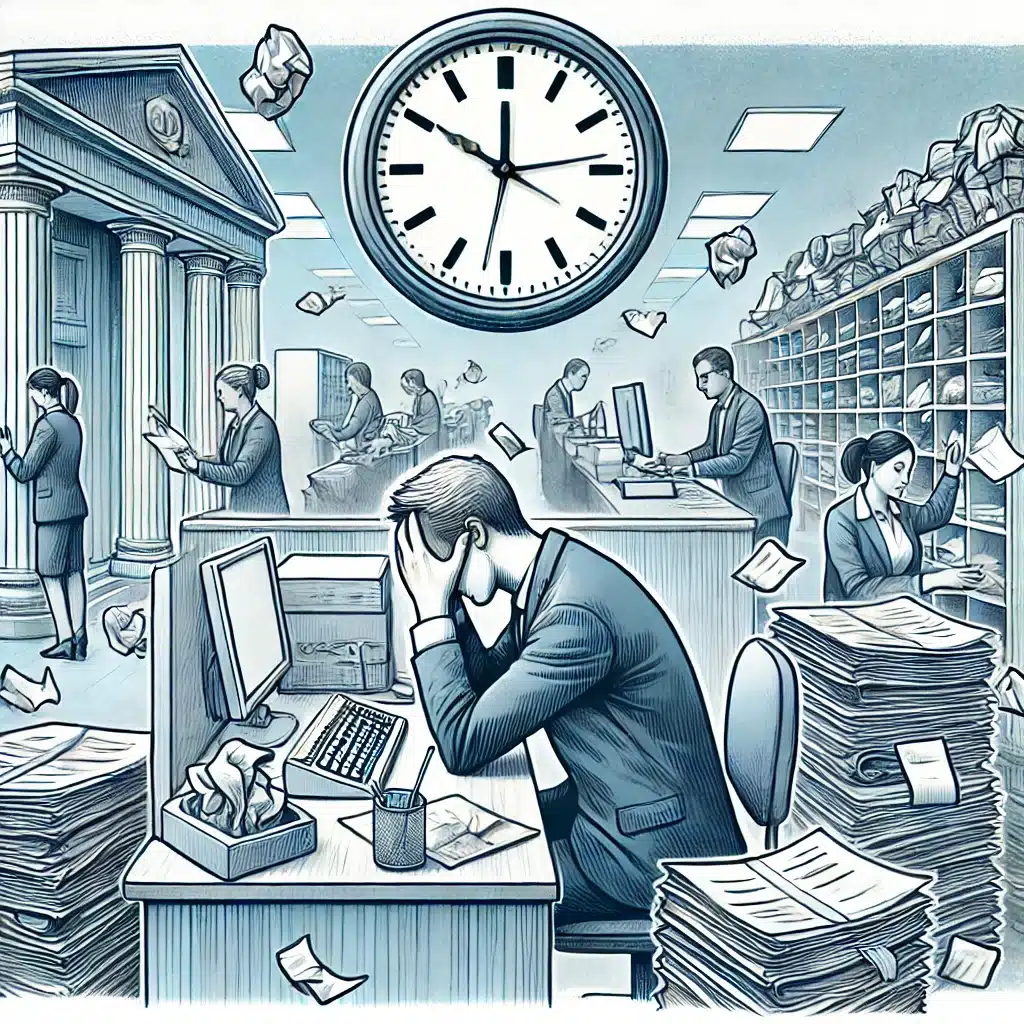|
Getting your Trinity Audio player ready...
|
Banking jobs are often associated with stability, good pay, and benefits, but the reality of working in a bank is not always as appealing as it may seem. Before you decide to pursue a career in banking, here are 10 reasons not to work in a bank that you should consider. From high stress levels to limited career growth, we break down the main disadvantages of working in the banking industry.
Follow Whatsapp Channel For More News & Blogs
1. Stressful Banking Jobs: Constant Pressure and Deadlines
Banking jobs are notorious for high levels of stress. Employees often face intense pressure to meet deadlines and sales targets, which can be overwhelming. The demands of customer service, financial regulations, and performance metrics make it one of the most stressful industries to work in. If you prefer a low-stress job, banking might not be the right fit for you.
Read Also: 8 Best Alternatives to Banking Careers
2. Monotonous Work: Repetitive Tasks and Limited Creativity
A common complaint from bank employees is the lack of creativity in their roles. Banking jobs, especially those in customer service or back-office operations, often involve performing repetitive tasks such as data entry and processing transactions. This can make the job monotonous and unfulfilling for those seeking more dynamic work environments.
Read Also: 11 Basic requirements to get Personal Finance from Pakistani Banks
3. Long Hours in Banking: Poor Work-Life Balance
The banking industry is known for its long working hours, especially during the financial year-end or busy periods like tax season. Many bank employees find themselves working late nights or weekends to meet the demands of their job. The long hours in banking can severely affect your work-life balance and leave little time for personal commitments.
Read Also: How Long Working Hours in Banking Impact Work-Life Balance: 4 Critical Effects
4. Limited Career Growth in Banking: Slow Climb Up the Ladder
While banking offers job security, the career growth can be slow and limited, particularly in certain roles. Many employees find themselves stuck in the same position for years, waiting for promotions that are often based on tenure rather than merit. If rapid career advancement is important to you, the slow pace of growth in banking may be frustrating.
5. Dealing with Customer Complaints: Emotional Toll
Bank employees are frequently on the front lines of customer service, dealing with disgruntled clients over transaction issues, fees, and account disputes. Handling difficult or irate customers can take an emotional toll, especially when you’re responsible for solving problems that are outside of your control.
6. Regulatory Compliance: Always on Your Toes
The banking industry is heavily regulated, and employees must constantly stay updated with new laws, policies, and procedures. The pressure to ensure that everything is compliant with government regulations can add extra stress to an already demanding job. Failure to follow regulations can lead to serious consequences, which puts a lot of responsibility on employees.
7. Sales Targets and Performance Pressure: Not Just Customer Service
Many banking jobs come with performance metrics and sales targets that employees must meet. This often includes selling financial products like credit cards, loans, and insurance. The constant pressure to hit these targets can make the work environment more competitive and stressful, leading to burnout for many.
8. Technological Disruptions: Keeping Up with the Changes
As the banking sector continues to embrace digital transformation, employees must constantly adapt to new technologies. Traditional roles are being replaced or reshaped by digital solutions, meaning that bank employees need to continually update their skills to stay relevant. If you’re not tech-savvy or comfortable with rapid technological change, this can be a challenging aspect of working in a bank.
9. Lack of Creativity in Banking: Rule-Bound Roles
Creativity often takes a back seat in banking, where strict policies and procedures are the norm. Employees are expected to follow rigid guidelines, leaving little room for innovative thinking. If you thrive in a more flexible and creative work environment, banking may feel restrictive.
10. Banking Job Disadvantages: Vulnerability During Economic Crises
Though banks are generally stable, economic downturns or financial crises can result in mass layoffs and budget cuts. While banking jobs offer a degree of security, they aren’t entirely immune to the effects of the economy. In times of financial instability, even long-time employees may find their positions at risk.
Conclusion
While working in a bank may seem attractive due to the financial benefits and job security, the reality is that it comes with many challenges, including high stress levels, long hours in banking, and limited career growth opportunities. Before you make a decision, consider these reasons not to work in a bank and assess whether a banking career aligns with your long-term goals.



